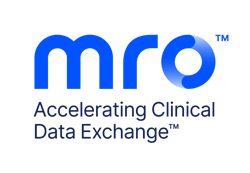Innovator Awards Vendors: Winning Organization: MRO Corp.
Leaders at the Norristown, Pennsylvania-based MRO Corp. have been focusing on innovating the exchange of information across healthcare stakeholders to streamline every step of the quality reporting process. The company’s clinical data exchange solution incorporates all relevant data to support such quality reporting requirements as MIPS, HEDIS, eCQMs, APPs, and other non-APPs. By reducing administrative burdens associated with quality reporting, MRO introduces a mutually beneficial payer-provider clinical data exchange process. MRO’s process for ACOs includes end-to-end service, and its platform sheds light on gaps in quality performance. It ensures availability of user dashboards and improved quality reporting submissions, while physicians and health plans are able to allocate their attention and resources more efficiently through stronger payer-provider collaboration.
Read their story of innovation below:
Although there has significant advancement in health information exchange, the sharing of clinical data between providers, payers, and quality assurance regulatory bodies remains a challenge. Ubiquitous information sharing between these healthcare stakeholders would produce valuable benefits and reduce administrative burden. However, many information sharing activities remain manual and labor intensive for all parties and the industry entirely. This is especially true during the quality reporting process where the high-risk exchange of clinical information is involved.
For example, provider organizations grapple with the challenge of fair and adequate risk adjustment data used to compare with competitors, collecting and validating numerous measures, and prioritizing patient-care and privacy while enduring extreme varieties of medical record requests, leading to complexities in quality reporting. Likewise, payers grapple with quality reporting challenges, including the absence of data standardization across different formats and sources of data aggregators, diverse quality reporting requirements, and the ongoing re-evaluation of quality score measure weights.
Healthcare quality reporting, such as MIPS, HEDIS, eCQM reporting, APPs, and other non-APP measures, is where MRO drives innovation through its Clinical Exchange Platform. The company brings providers, payers, and quality organizations together for the benefit of all.
MRO streamlines quality reporting workflow, boosts HEDIS quality scores, and reduces administrative burden
By reducing administrative burdens associated with quality reporting, MRO introduces a mutually beneficial payer-provider clinical data exchange process. Our Clinical Data Exchange platform shifts the relationship from adversarial to collaborative through three specific steps.
- The Clinical Exchange Platform puts all possible certifications and guardrails in place to ensure all quality reporting is done efficiently, effectively, and securely.
- Every variation of quality reporting is underpinned by this technology, which streamlines the clinical data exchange process, meticulously evaluating each piece of data.
- MRO’s solution is tailored for each stakeholder to deliver significant workflow and quality outcome improvements.
Case in point: HEDIS scores improved by 63%
When MRO’s Clinical Data Exchange Platform was implemented in a prominent health system and a corresponding health plan, it demonstrated reduced friction between the two stakeholders. Information siloes were broken down, administrative burdens were reduced, and the organizations saw a remarkable 63% improvement in HEDIS® quality measures.
Recognized with KLAS Research’s K2 Collaborative award in 2023, this success story is just one use case that exemplifies how MRO innovates the exchange of information between providers, payers, and quality agencies in healthcare.
Data quality: an essential ingredient for healthcare
Innovating each portion of the quality reporting process requires meticulous data validation processes. When such clinical exchange technology was used for an Accountable Care Organization (ACO), MRO ensured that it met the NCQA standards set by their Data Aggregator Validation (DAV) program.
MRO has earned the Validated Data Stream Designation in NCQA Data Aggregator Validation Program, for the third time. The NCQA’s Data Aggregator Validation certification process offers our clients a streamlined approach, eliminating the need for the expensive and labor-intensive Primary Source Verification (PSV) step.
MRO’s process for ACOs includes end-to-end service. The company offers onboarding, support, data collection, processing, and a quality performance dashboard. The offerings ensure seamless quality performance reporting and compliance with the NCQA standards. Here are three specific ways that MRO’s Clinical Data Exchange Platform supports data quality improvements in healthcare.
- The platform sheds light on gaps in quality performance, aggregates data from all holders across all formats, ensures accurate data transfers from all varieties of EHRs and IT systems, and establishes premiere data governance.
- The availability of user dashboards and quality reporting submissions significantly improves the efficiency of exchanging clinical data.
- Patients also benefit from MRO’s exchange technology. As inefficiencies and gaps in clinical data exchange are mended, patients become more confident that their confidential health information is shared securely.
- Physicians and health plans allocate their attention and resources more efficiently through stronger payer-provider collaboration.
Drawing on decades of experience and cutting-edge technology, MRO innovates the exchange of clinical data in quality reporting. Their innovative strides have yielded profound industry-wide benefits, including mended payer-provider relationships, cost reductions, streamlined workflows, and alleviated administrative burdens.
